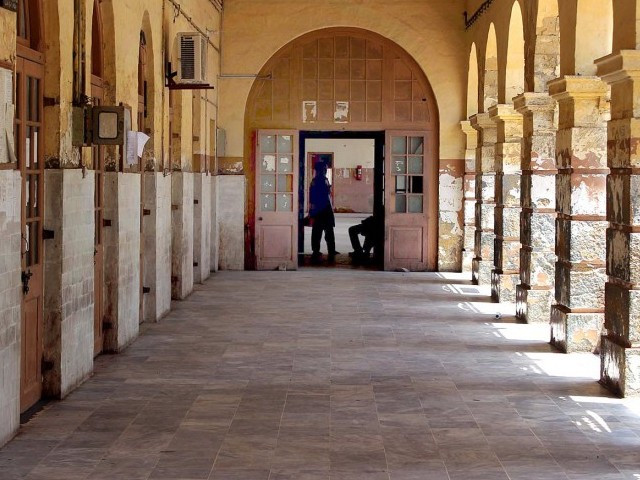Cases stuck in courts block capital flow to economy
Courts must be educated in corporate laws for speedy disposal of cases

Courts must be educated in corporate laws for speedy disposal of cases. PHOTO: INP
Most important of these elements are policy, competitiveness, a smooth supply of capital, material, energy and technical labour.
Planning failure: Over 700 cases against faulty constructions pending in courts
Institutions that prevent rust and jamming of the wheel include courts at multiple tiers that are meant to ensure quick justice through litigation and arbitration.
In Pakistan, the wheel-pushing elements happen to be weak and the rust-preventing institutions are rusty themselves. Hundreds of cases are stuck at both the tribunal and court levels. Most of these involve phenomenal capital which, if allowed to flow back into economic arteries, might do wonders in pushing the wheels of national economy.
A study of the subject over the past couple of years reveals that legislators, members of tribunals, legal practitioners and judges have little coordination to ensure that the deck is cleared and litigation is made clog-free at least in cases where large amounts of capital are involved.
Board of Investment Chairman Dr Miftah Ismail reiterated the previous week that investment in Pakistan was protected by the Foreign Private Investment (Promotion and Protection) Act 1976 and the Protection of Economic Reforms Act 1992.
These Acts are 40 and 24 years’ old respectively. But there was hardly any case filed in courts under these laws which is a testimony to the fact that investors trust these laws and the courts the least. It would be naive to assume that foreign or local investors are unaware of the worth of these laws and the courts in protecting their investments.
The curious case of missing court files
Lack of law implementation
Pakistan has continued to fail to woo foreign and domestic investors. In fact, the problem lies in implementation of these laws at the level of courts.
Normal civil courts are presided over by judges that might have extensive experience in disposing of civil cases relating to disputes over property, land, livestock, etc. However, these judges are then promoted and asked to handle cases pertaining to industrial disputes in big towns where investment-related cases emerge.
But they are least familiar with investment and corporate laws and rarely accustomed to the speedy disposal of such cases.
In hearing the cases, the courts and judges need to adjudicate upon issues concerning investment guarantees, financial leases, mining leases, capital market, intellectual property rights, trade, banking, insurance and company laws.
Investors regularly face hurdles to the implementation of investment protection laws, which is critical for investments in an era when only fast-paced businesses enjoy competitiveness.
A case filed by an aggrieved investor happens to be one of thousands of pending files in courts. He faces unbearable lethargy in the disposal of the case and indifference on the part of judges along with long stay orders and innumerable adjournments leading to delay of several years or decades. This creates a completely anti-investment environment, to say the least.
Why Tort Law needs to be implemented in Pakistan
In this situation, investors feel helpless as legal practitioners lack the required knowledge of corporate laws.
Deliberately prolonged
The problems are compounded by frequent strikes by bar councils, further delaying the hearing of cases. Apart from this, proceedings are prolonged by the counsel and lawyers paid by investors to fight their cases.
Often such cases involve a big amount of money, leading some counsel of aggrieved investors to betray his client, who is forced to pay a heavy fee for litigation.
Recently, the Khyber-Pakhtunkhwa minister of mineral development and labour said the Mineral Act would soon be finalised in consultation with all stakeholders. This seems to be a positive step in the right direction, but it may not help the investors in the mining sector, which needs comprehensive reforms.
Under the proposed Act, the investors seeking justice will go to the court instead of the higher executive appellate authority against the Mines Department. This will mean “out of the frying pan, into the fire”.
To overcome the problem of lack of knowledge in dealing with corporate litigation, some countries have established separate institutions like Economic Courts with a panel of experts, as in Egypt in 2008.
The investment-discouraging posture of courts needs to be changed through urgent legislation in Pakistan. This might be the only course to have laws in place that will attract or protect investment in the country.
The writer has worked with major newspapers and specialises in the analysis of public finance and geo-economics of terrorism
Published in The Express Tribune, January 25th, 2016.
Like Business on Facebook, follow @TribuneBiz on Twitter to stay informed and join in the conversation.



















COMMENTS
Comments are moderated and generally will be posted if they are on-topic and not abusive.
For more information, please see our Comments FAQ